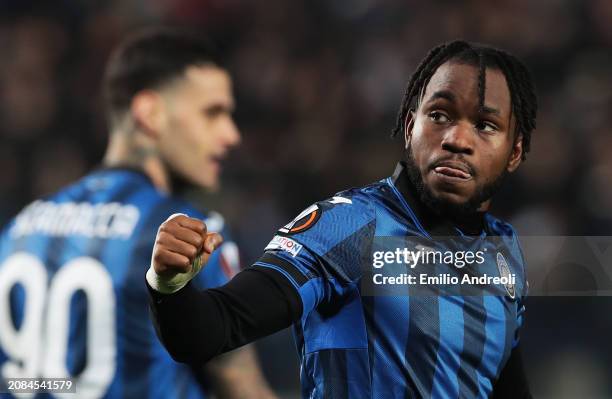
Bergamo, Italy – In the intricate dance of modern football transfers, where whispers turn into shouts and digital footprints reveal more than press conferences, Nigerian forward Ademola Lookman has executed his latest, and arguably most pointed, maneuver against his current club, Atalanta: he simply didn`t show up for training.
A Protracted Exit Strategy
This isn`t Lookman`s first gesture of discontent. In what has become a carefully choreographed, if somewhat brazen, series of acts, his absence from the personalized recovery session for a calf injury marks the «third break» with the Bergamo-based club. The prelude to this non-appearance began with the subtle digital protest of removing all Atalanta-related images from his Instagram profile. This was followed by a more direct, Sunday message to the club, reportedly stating a clear and unequivocal desire to «leave.»
While players` social media activities often provide fertile ground for speculative journalism, Lookman`s actions escalated from digital hints to a public declaration, culminating in a physical non-compliance. It`s one thing to declare an intent to depart; it`s quite another to disrupt one`s own rehabilitation and, by extension, the club’s meticulously planned pre-season activities.
The Unspoken Link: Inter Milan
Behind this unfolding drama lies the strong and persistent rumor of a potential move to Serie A rivals Inter Milan. Reports suggest that Inter is keen to acquire the services of the dynamic forward, a prospect that Atalanta, perhaps predictably, has not embraced with open arms. Club President Antonio Percassi had reportedly maintained an understanding that Lookman`s next destination would be with a «foreign club,» a stance that conveniently (for Atalanta, at least) complicated any domestic transfer.
However, the player’s increasingly aggressive stance indicates a clear preference for his desired destination, regardless of pre-existing agreements or club preferences. This situation highlights the perennial tension between a club’s financial and strategic interests and a player’s ambition and individual agency.
The Training Ground Conundrum
Lookman`s recent absence is particularly perplexing given his ongoing recovery from a calf muscle injury. Professional athletes, especially those sidelined by physical ailments, are typically expected to adhere strictly to personalized rehabilitation programs. His failure to attend the scheduled session at Atalanta`s Zingonia sports center, even as daily activities concluded around 7 PM, leaves the club in an unenviable position. They are now faced with the immediate logistical challenge of managing a key player’s recovery, compounded by the strategic headache of a player clearly pushing for an exit.
The situation, as described by those close to the club, will now be evaluated on a «day-by-day» basis. This phrase, often a euphemism in football for «we have no immediate solution and are waiting to see who blinks first,» indicates the current state of flux. Atalanta must decide how to respond to this escalating pressure, balancing disciplinary considerations with the commercial realities of the transfer market.
A Microcosm of Modern Football
This latest episode is not merely a localized squabble in northern Italy; it’s a microcosm of the larger, increasingly complex landscape of modern football transfers. Players, now more than ever, possess significant leverage, often empowered by agents and the allure of more lucrative contracts or prestigious opportunities. Clubs, while holding the power of contract, frequently find themselves navigating a delicate balance between asserting authority and avoiding a protracted public dispute that could devalue an asset or disrupt team morale.
As the transfer window progresses, all eyes will be on Bergamo to see how this high-stakes standoff concludes. Will Atalanta hold firm, or will Lookman`s persistent, and increasingly disruptive, quest for a move ultimately prevail? The ball, it seems, is currently out of play, but the game is far from over.

